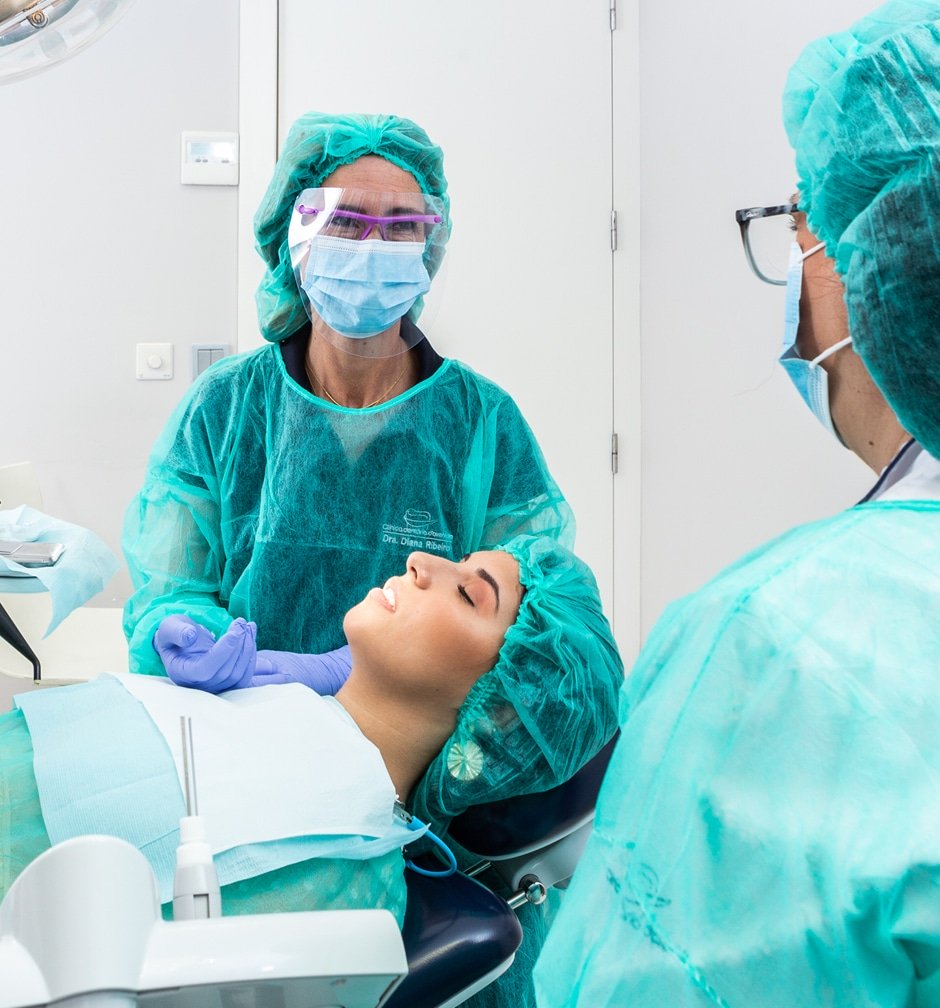
ORAL SURGERY TREATMENT
Oral surgery
Oral Surgery is the specialty of Dental Medicine that deals with the diagnosis/surgical treatment of diseases, injuries and problems of the teeth, mouth, jaws and annexed structures.
Oral Surgery includes dental extractions, either of teeth present in the arch or of impacted teeth, endodontic surgery (in case, for example, of failure of endodontic treatment), surgery for cystic or tumoral pathology, periodontal surgery, implant surgery, pre-prosthetic surgery (surgery to prepare the mouth before placing a dental prosthesis), surgery for infectious lesions and oral traumatology.
Surgical acts, performed in the oral cavity, are traumatic but can be minimised. A previous preparation should be made, which includes the clinical history, the diagnosis, and the adequate planning of the surgical intervention. By choosing an adequate anaesthetic technique, as well as an atraumatic surgical technique, and an effective post-operative therapy, a high level of comfort will be obtained during and after the surgical act.
If the surgical procedure is performed under local anaesthesia, the patient should avoid a long period of fasting at the time of the surgery. Only in the case of being submitted to general anaesthesia, should the patient fast several hours beforehand, but always under medical indication. The postoperative care that the patients must follow are, essentially:
• Apply ice on the face, over the operated region, for 24 to 48 hours, in alternating periods of 10 to 15 minutes. Wrap the ice in a cloth to avoid burns on the face;
• Soft / liquid and cold diet for the first 24 to 48 hours (e.g. ice cream, yoghurt, gelatine, etc.);
• Sleep with head elevated (e.g. use 2 pillows);
• Avoid exposure to sun and heat, as well as physical effort, until the suture is removed;
• Brush the surgical wound carefully, preferably using a surgical brush;
• Rinse with a mild mouthwash 2 to 3 times a day using an oral antiseptic, for one minute, starting not earlier than 24 hours after surgery, thus avoiding clot disorganization;
• Avoid smoking;
• Comply scrupulously with the prescribed medication. It is normal to experience slight bleeding in the first 24 hours. If this bleeding is more intense (haemorrhage), the patient should fold one or more sterile gauze pads, place them over the bleeding region and compress with the opposing teeth until the bleeding is controlled. If you need to apply more gauze pads, do not remove the first one, but apply another one on top of it. Patient should apply ice and avoid lying down. If bleeding persists, contact your dentist.
CASOS CLÍNICOS
Casos de Cirurgia Oral



APPOINTMENTS
